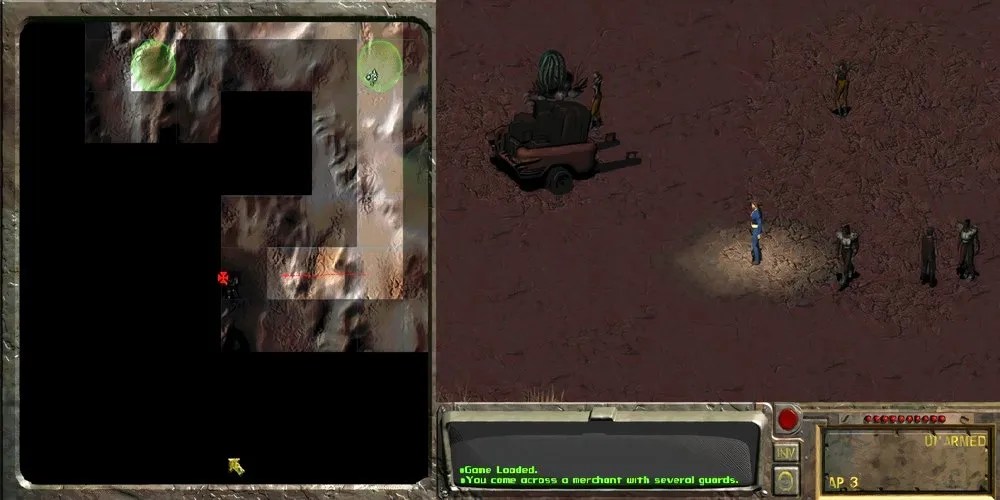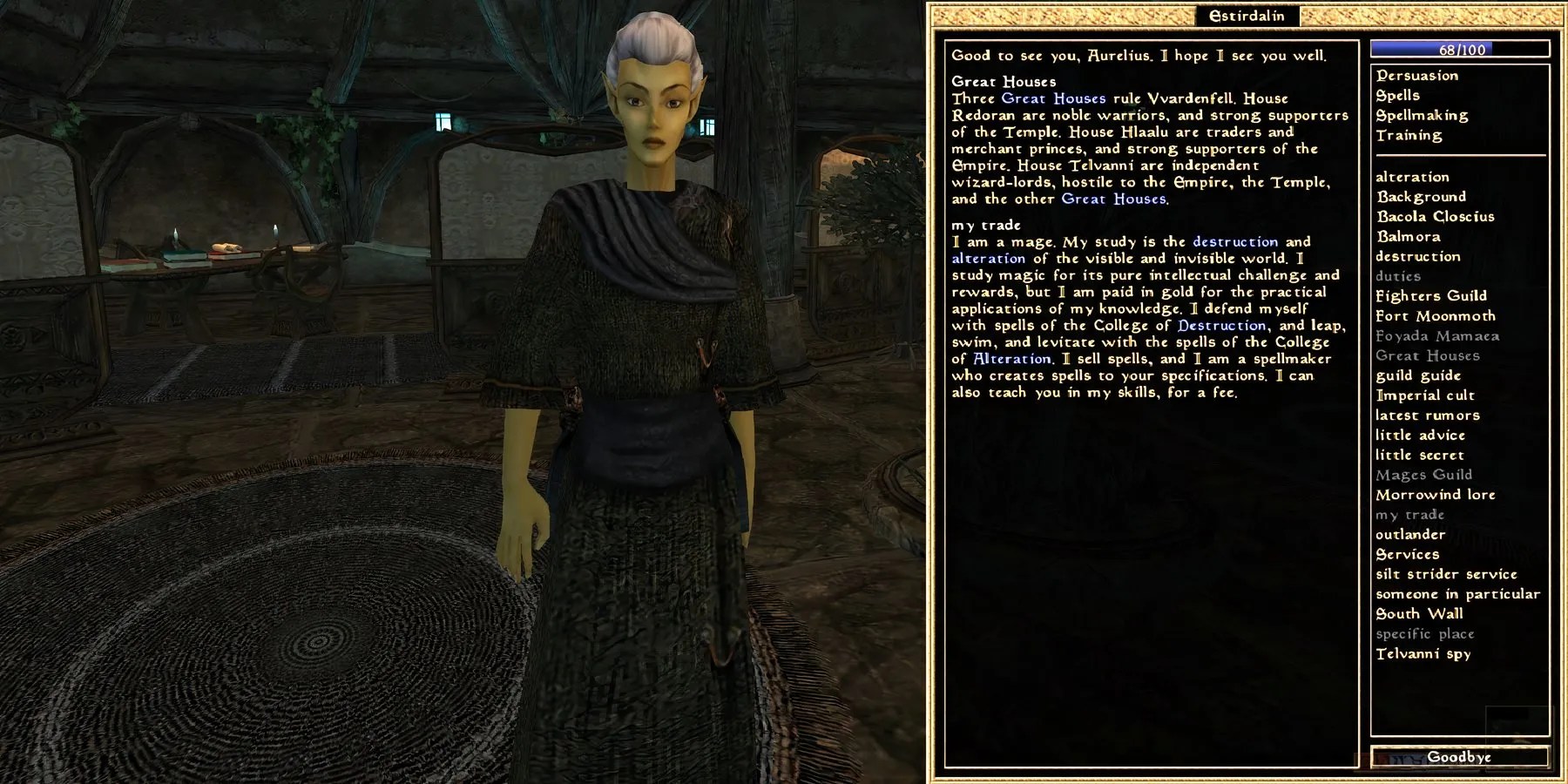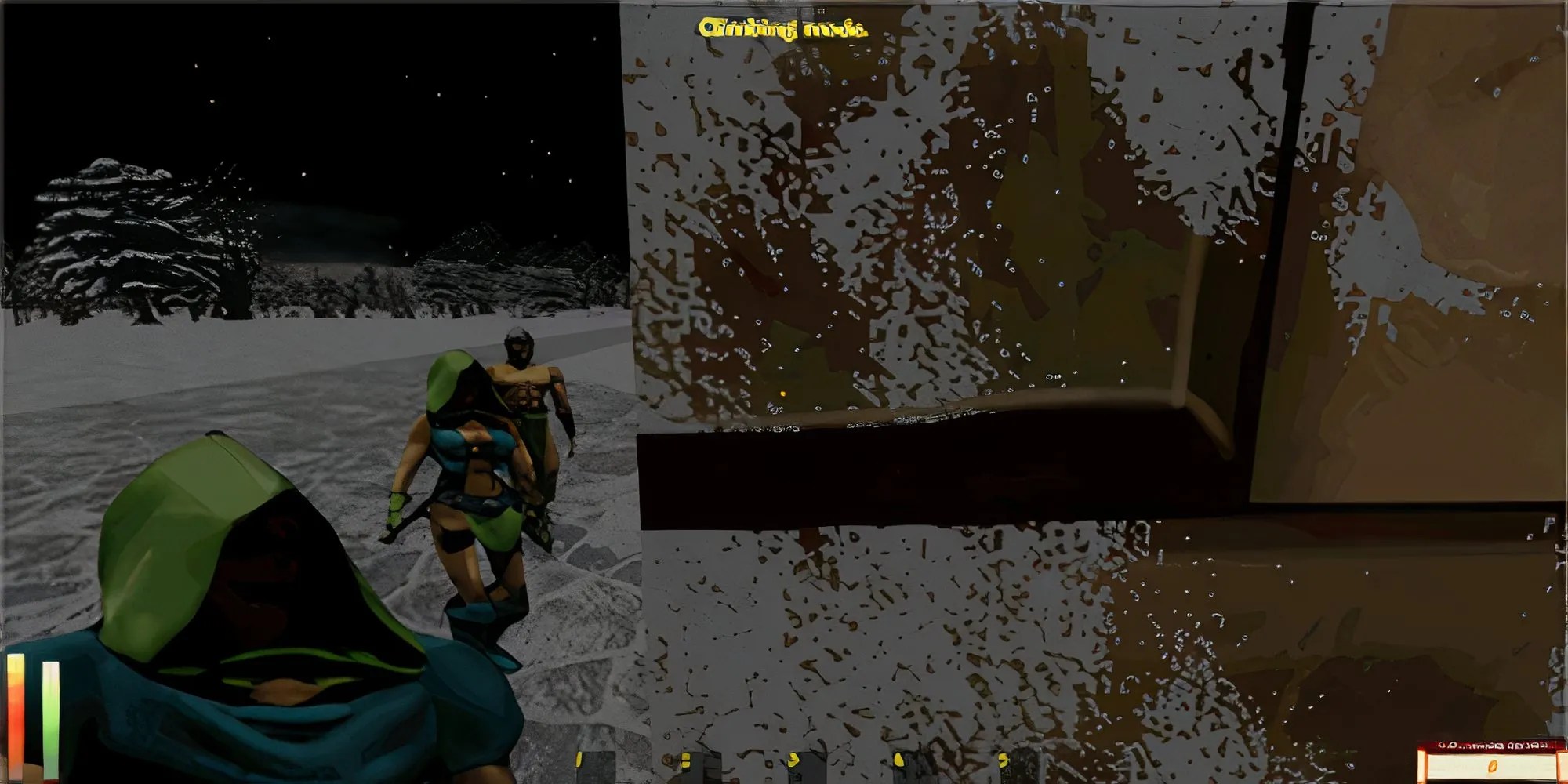Summary
While they can be some of the most ambitious works in the medium, roleplaying games tend to be big, expensive, and complicated to produce. Unsurprisingly, as development time, costs, and audience expectations have exploded, the appetite for risk has equally shrunk in the AAA space, meaning that many innovative features that once appeared to point to the future of the genre have slowly wilted away.
Whilea few brave indie studioshave picked up the slack and filled the niches left behind, some of those lost features are, unfortunately, only possible with large teams. Other mechanics simply fell out of vogue and lost to time due to their obscurity or overly complex nature. Either way, these features have, for the most part, been relegated to history.

Random encounters in RPGs have mostly fallen by the waysidealong with other RPG annoyances, and for good reason. During dense dungeons or while trying to escape labyrinthian caves, getting loaded out of the map and loaded into battle derails the player’s train of thought, needlessly interrupting the task at hand. After rendering enemies onscreen without the need to load between exploration and action became possible with more advanced technology, random encounters were made visible on the map with placeholders that could be avoided, or done away with. However, older RPGs offer examples of random encounters that don’t make players quit in frustration. The key is variety and location suitability. A great example of how an RPG can keep the feature fresh can be found in the originalFallout.
While most encounters will involve dealing with giant, deadly scorpions orother irradiated nightmares, the game’s encounter table includes instances that can be beneficial to the player. This includes meeting traveling traders or finding loot like health items or gear on fallen wastelanders. Very rarely, players will stumble across something weird, such as aliens or time travelers. Even modern games that attempt to adapt tabletop games tend to fall short by only offering fights, foregoing fun or friendly events. Rather than constantly wearing players down, random encounters could be an occassional nice surprise, especially if 95% are made optional and placed off the beaten track (like the tall grass inPokemon) where players may be inclined to explore.

A roleplaying game without dialogue is like a platformer without collectibles. They aren’t necessarily mandatory, but it would feel odd without them.Most RPGs tend to use dialogue trees, with players choosing from a preset selection of options. But writing character dialogue, especially for the player character, is a delicate art; too little and the player feels constrained; too much and there will be a clash between the player’s idea of the character and the character the writers wrote. Finally, too many options can overwhelm the player or, worse, create a mountain of work for the writers. RPGs of the past tended to use dialogue trees, but with a twist. As well as the usual questions or statements, players were able to input their own questions using a keyword-driven dialogue system.
Games likePlanescape: TormentandFalloutallowed players to type NPC or location names and get a response. While this sounds fine in practice, it would be better if the game remembered these names.The Elder Scrolls: Morrowinddid just this with its hyperlink-like topic system. Any topic the player was aware of (and something the NPC could presumably talk about) is displayed on the right-hand side. NPCs will print a response determined by their personality, as if the player had asked them a question. While a little more variety could have reduced the generic nature of some replies, this system meant that players could have regular and useful dialogue and learn about the world in an immersive way, all without the need for a pre-written script, and since, perhaps because of its complexity, the concept has been largely abandoned.

Exploration has always been one of the central motivators for RPG players, whether venturing through open worlds or navigating treacherous dungeons, but it often comes with the potential frustration of getting lost, especiallywhen exploring without a map. With conveniences like floating quest markers or GPS trails, players rarely experience uncertainty or confusion about their next steps. Some RPG fans argue that relying solely on these markers diminishes the experience. But without diegetic clues, directions from NPCs, or environmental hints, players who disable markers for immersion (despite occasional frustration) find it nearly impossible to complete objectives effectively.
Games likeMorrowindleave pathfinding and getting lost up to the player, with helpful signposts and NPCs offering guidance with daigetic directions. However, a more intimate exploration feature has been lost: mapping. Early cRPGs likeMight & MagicandWizardryrequired players to use pen and paper to map dungeon layouts by hand. Besides the relatively-recentEtrian Odysseyseries, which, thanks to the stylus feature of the DS, embraces this tradition, few modern RPGs ask players to participate in the surprisingly satisfying task of penning maps or keeping their own detailed notes (even if it means choosing which details to keep) as they explore, meet people, and complete quests.
Break open any mainstream tabletop roleplaying game, and chances are that there will be at least a handful of language skills ready for the player to choose from during character creation. However, even in tabletop games, the chance to use these skills tends to be limited. In cRPGs, language skills have become all but absent. This is lamentable, the joy of real-life adventure in foreign and exotic lands stems fromdeveloping the ability to understand new languages. One example of this isFinal Fantasy 10, in which Tidus slowly learns the Al Bhed language over the course of the story.
The reward grants the player the ability to understand the Al Bhed tongue, which, while interesting on a New Game+ playthrough, still feels somewhat passive. Learning a language was also used in the originalFinal Fantasywhen the Heroes of Light needed to speak to beavers (of all creatures). Players could use language inThe Elder Scrolls 2: Daggerfallto pacify monsters if their skill was high enough, but even the developers admitted that there were limitations to the implementation. Perhaps a future developer will not only take the concept of language skills and use them but use them to their full potential.

The Highs And Lows Of Getting High And Low
The Elder Scrolls II: Daggerfall
The ancient golem Numidium, a powerful weapon once used by the great Tiber Septim to unify Tamriel, has been found in Iliac Bay. In the power struggle that follows, the King of Daggerfall is murdered and his spirit haunts the kingdom. The Emperor Uriel Septim VII sends his champion to the province of High Rock to put the king’s spirit to rest and ensure that the golem does not fall into the wrong hands.The developers describe the content like this:Animated Violence, Mature Sexual Themes
It’s easy to see why this feature went away in cRPGs. Since climbing requires painstaking animation, modeling, and bug finding (mostly so the player can’t get out of bounds or solve every problem with dexterous ascension), where it rarely appears, it tends to be included as a main feature and is available in every play style (such as the RPG-infusedAssassin’s Creedentries). Additionally, it’s one thing to fill a big RPG world with content, but it’s quite another to ensure that all that intricate architecture has all the collision mapping perfectly aligned for one skill (of many) that a player might not even bother with. It was possible in a game with generic, procedurally-placed buildings inDaggerfall, but not so much in newer, more ornately crafted game worlds.
Climbing or jumping skills would allow players who chose nimble characters to reach places, whereas other playstyles would be left grounded and, unless other classes have access to an equally killer mechanic, would feel left out. In the same vein, while many RPG fans yearn to play out theirSupermanorAladinfantasieswith levitation spells or abilities, the same problem arises. Without imposing excessive limitations, players would be able to break the game, go out of bounds, and completely skip content, boiling most of the extremely expensive open world down to flyover country.